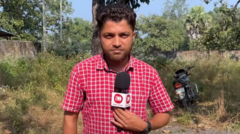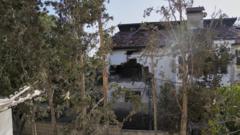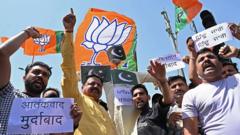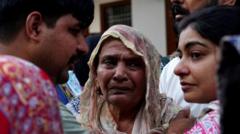The body of Mukesh Chandrakar, a freelance journalist who reported on corruption in Chhattisgarh, has been discovered in a septic tank, leading to arrests and nationwide demands for justice.
Investigation Launches After Body of Missing Indian Journalist Discovered

Investigation Launches After Body of Missing Indian Journalist Discovered
Mukesh Chandrakar, an acclaimed journalist known for exposing corruption, was found dead in a septic tank, prompting outrage and calls for accountability in India.
The tragic discovery of Mukesh Chandrakar's body, a 32-year-old journalist known for his investigations into corruption, has ignited concerns over the safety of media professionals in India. Chandrakar went missing on New Year’s Day, prompting his family to file a police complaint. His body was ultimately located in the septic tank of a construction contractor in Bijapur, after police traced his mobile phone.
Authorities initially missed clues during their first inspection of the compound on January 2. However, a more thorough search the following day led to the grim finding of Chandrakar's remains, which exhibited injuries indicative of a violent attack. The subsequent investigation resulted in the arrest of three individuals, including alleged relatives of the journalist, while a principal suspect is reportedly at large.
Chandrakar's reporting, particularly through his YouTube channel Bastar Junction, focused on irregularities in public construction projects in the region. Following the reporter's death, the Press Council of India issued a statement urging a comprehensive investigation into the circumstances surrounding his demise. The state's Chief Minister expressed grief over the incident and announced the formation of a special investigation team dedicated to resolving the case.
The outcry from local journalists has been profound, as they demand justice and accountability for the actions that led to Chandrakar's death. This incident highlights a distressing trend in India, where journalists face considerable dangers, particularly those who investigate corruption or environmental issues. Historical data shows that India ranks among the most perilous nations for journalists, with multiple fatalities each year linked to their work.
An ongoing petition for justice not only seeks to address this single case but also to bring attention to the broader climate of threats faced by those dedicated to the truth in India's challenging media landscape.




















